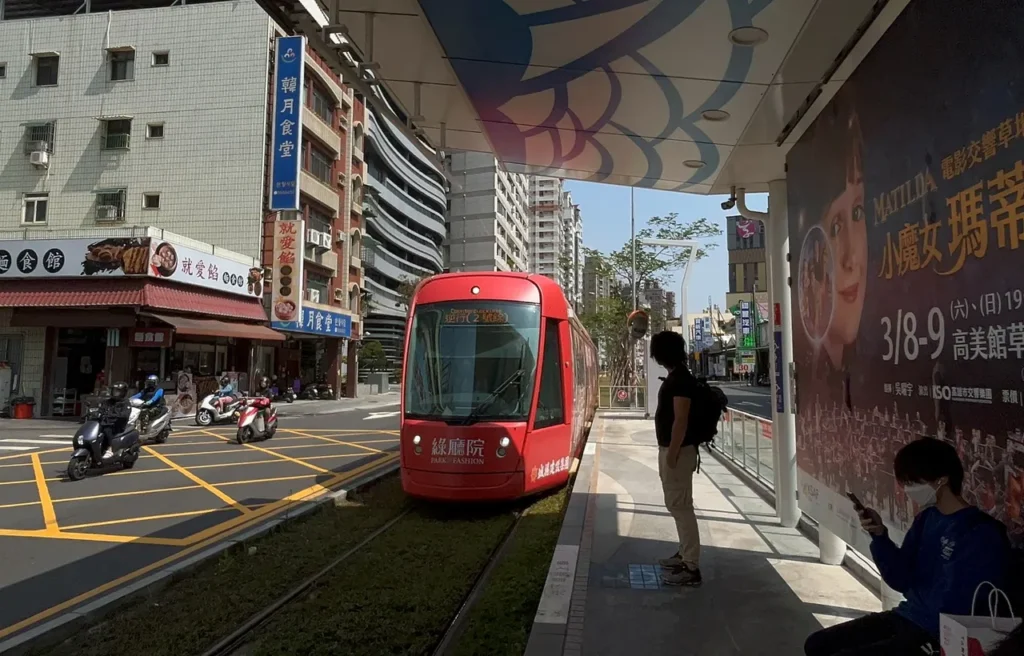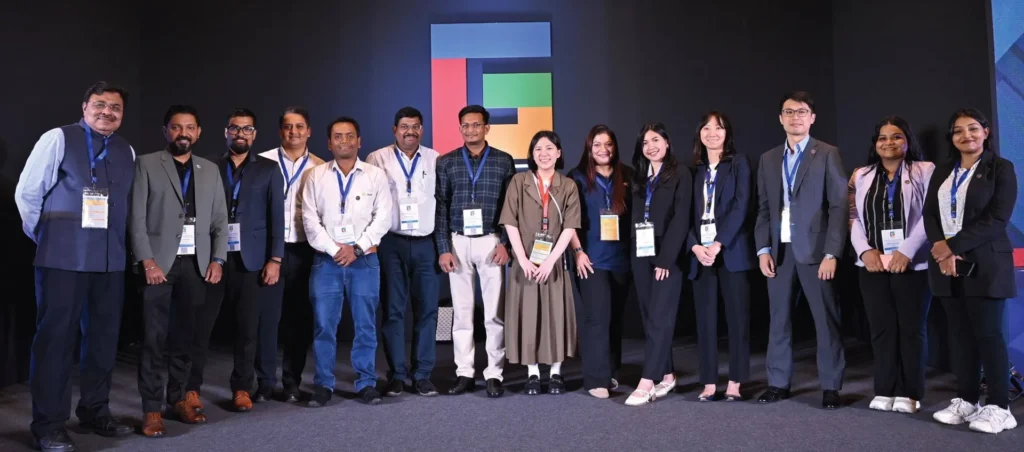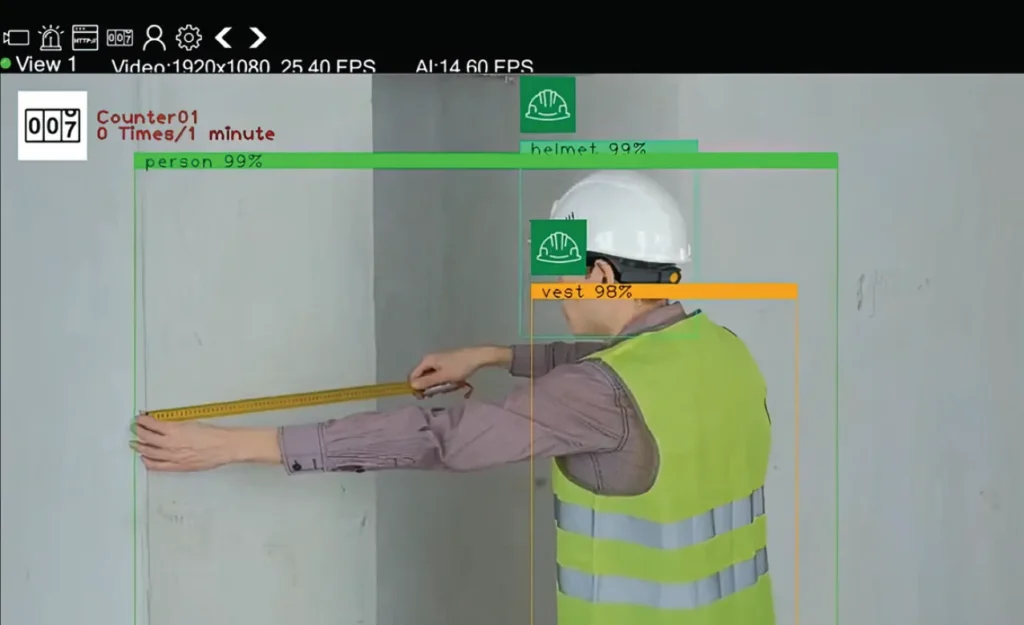
LILIN's Strategic Expansion in India: Pioneering AI-Powered Surveillance
Seizing the Digital Transformation Wave

Founded in 1980, LILIN Enterprise Co., Ltd. (LILIN) began as a manufacturer of analog cameras and has since established itself as a trusted name in Taiwan’s security industry over 45 years. Five years ago, LILIN ventured into the Indian market, leveraging its expertise to capitalize on emerging opportunities.
Jerry Lu, LILIN’s Asia-Pacific Business Director, describes India as “a unique market with immense growth potential, driven by rapid development, a vast demographic dividend, and significant infrastructure investments.”
LILIN has steadily expanded its presence in India through a registered subsidiary, navigating challenges such as the COVID-19 pandemic and intense price competition from mainland Chinese surveillance brands. Initially, growth expectations were modest. However, the U.S. National Defense Authorization Act (NDAA) and India’s heightened focus on cybersecurity shifted market dynamics, creating opportunities for compliant and innovative players like LILIN.
Under Prime Minister Narendra Modi’s vision, India’s national security industry is advancing in three phases: infrastructure development, industrial digitalization, and enhanced cybersecurity certifications. This strategy aims to bolster local enterprises while attracting foreign surveillance technology providers, fueling economic growth. India’s ambitious “Digital India” initiative, emphasizing smart cities, healthcare, and education, has unleashed a wave of opportunities.
Lu believes this is the ideal moment for LILIN to scale its operations, with its core strength in IP cameras—integrated with IoT and AI technologies—positioning it as a leader in smart surveillance solutions. For instance, AI-powered cameras in smart traffic systems reduce the need for manual enforcement while enhancing transportation efficiency.
Localization: The Key to Market Success

Localization is critical for foreign companies to thrive in India, according to Lu. LILIN has embraced this by respecting local culture, understanding commercial practices, and fostering trust with Indian partners. The company established a subsidiary, hired local sales teams, and partnered with distributors and system integrators (SIs).
Distributors drive brand visibility and provide prompt after-sales service, while SIs handle project-based installations. Currently, LILIN’s products are manufactured in Taiwan and sold in India. In alignment with India’s “Made in India” policy, select high-demand products will soon be assembled locally, with service centers established to enhance localized support.
AI Innovation: Carving a Blue Ocean Market

With surveillance camera technology reaching maturity, LILIN has shifted its focus to AI development, embedding AI engines directly into front-end cameras to eliminate the need for costly back-end servers. The company prioritizes two AI applications: behavioral detection and object recognition.
LILIN’s Z7-series AI cameras, paired with India’s robust software talent, enable tailored back-end solutions. Applications include smart campus electronic fences, anomaly detection, and healthcare solutions like ToF depth sensors, which protect patient privacy while detecting falls in real time. These customized innovations, born from Indian client needs, underscore LILIN’s “rapid customization” competitive edge.
Strategic Positioning and Customer Loyalty
The global surveillance industry is dominated by brands from the U.S., Europe, Japan, Korea, and Taiwan, with India’s market fiercely competitive across high- and low-end segments. LILIN differentiates itself through AI-driven, customized solutions and NDAA compliance, targeting government projects, smart factories, traffic enforcement, education, and healthcare.
Quality remains LILIN’s cornerstone, backed by 45 years of expertise and a commitment to seamless project delivery with partners. By establishing customer service centers in India, LILIN upholds its “customer-first” philosophy, fostering high customer loyalty.
India’s government has prioritized cybersecurity, mandating NDAA compliance and certifications like STQC and BIS to curb low-quality imports. LILIN has focused on four key cities—Mumbai, New Delhi, Bangalore, and Hyderabad—where its NDAA-compliant solutions and local partnerships, particularly in Hyderabad’s foreign-invested business hub, have made it a preferred choice.
Flexible Market Strategies and Innovation
Unlike traditional retail channels, LILIN targets niche, customized markets. Small-scale projects are fulfilled from Taiwan, while larger ones involve local assembly, demonstrating strategic flexibility.
Annual seminars with partners showcase LILIN’s latest AI video analytics, such as factory quality control systems and healthcare elevator wheelchair detection, with potential applications in public spaces like metro stations and airports. Lu notes that many innovations stem from client demands, highlighting the importance of market sensitivity.
Tapping India’s Youth and Building a Taiwan Ecosystem
Lu praises the ambition and learning agility of India’s youth, who are eager to leverage knowledge for success. LILIN actively nurtures local talent and welcomes Indian graduates from Taiwanese universities to join its team, fostering Taiwan-India collaboration. Chairman Paul Hsu views employees as vital assets, promoting a culture of “unity, dedication, and customer trust.”
Looking ahead, LILIN aims to focus on smart transportation, education, and healthcare over the next three years, with STQC certification underway in 2024 and plans to enter the smart factory sector in 2025. Lu is optimistic about India’s infrastructure-driven growth, envisioning a “Team Taiwan” ecosystem where Taiwanese brands collectively elevate their market presence. By championing “Intelligent Eyes & Fantastic Solutions,” LILIN aspires to see its cameras deployed worldwide, showcasing Taiwan’s technological prowess.



